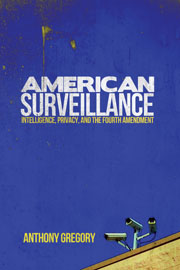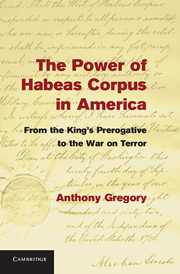This week’s Supreme Court decision, affirming that Guantanamo prisoners have habeas corpus access in domestic civil courts, raises vital questions on the judiciary’s role in checking executive power.
The writ of habeas corpus, a process to scrutinize detentions, is an ancient issue, seven centuries old. Members of the 17th-century English Parliament resented the King’s circumvention of the writ’s reach by sending prisoners to remote lands. The Supreme Court has now sided with those who long ago opposed such dirty executive tricks. In late 2001, the administration set up the prison camp in Cuba. The idea was to have executive control but not be subject to U.S. judicial checks. Since the prison is on Cuban “sovereign territory,” American courts supposedly have no right to intervene.
But the U.S. has had “complete and uninterrupted control of the bay for over 100 years,” Justice Kennedy wrote for the Court. “In every practical sense Guantanamo is not abroad; it is within the constant jurisdiction of the United States.”
In 2004 the Court affirmed the right of “enemy combatants” to challenge their detention. In response, Congress and the president established Combatant Status Review Tribunals to test whether a detainee’s “enemy combatant” designation is proper. The 2006 Military Commissions Act reasserted that habeas does not reach to the Bay. The Court has now overruled this part of the law.
Kennedy says the CSRTs are inadequate. They allow hearsay evidence and deny the right to council. The executive has control and habeas is supposed to provide independent scrutiny. The question of where habeas applies “must not be subject to manipulation by those whose power it is designed to restrain.”
Kennedy notes that unlike the “enemy combatant” tribunals on the battlegrounds of past foreign wars, Guantanamo is “a secure prison facility located on an isolated and heavily fortified military base” and its cases “involve individuals detained by executive order for the duration of a conflict that, if measured from September 11, 2001, to the present, is already among the longest wars in American history.”
The four conservative justices dissented, including Justice Roberts, who argued that the current federal court CSRT review process is not much different from the majority’s somewhat vague idea of habeas corpus review.
But Justice Scalia thinks it changes everything. “Today, for the first time in our Nation’s history,” he dissented, “the Court confers a constitutional right to habeas corpus on alien enemies detained abroad by our military forces in the course of an ongoing war.”
Scalia warned of the “disastrous consequences” of the decision, given the “war with radical Islamists.” Indeed, “it will almost certainly cause more Americans to be killed.”
“Most tragically,” Scalia concluded, “it sets our military commanders the impossible task of proving to a civilian court . . . that evidence supports the confinement of each and every enemy prisoner.”
Scalia as well as Roberts accuses the Court of butting into foreign policy, yet his own reasoning is informed by definite opinions on foreign affairs, including a careless deference to executive power. Bush appreciated such deference, saying the dissent “was based upon . . . serious concerns about U.S. national security. ”
Scalia refers to the president as “the Nation’s Commander in Chief.” This is wrong. Under the Constitution the president is only the “Commander in Chief of the Army and . . . and of the Militia . . . when called into the actual Service” of the U.S. The president does not command the whole country, and it is frightening that a Justice would say he does.
Why such blind trust for the governmental branch that insisted after 9/11 that all the Guantanamo prisoners were the “worst of the worst” and has in six years since released hundreds and convicted only one of terrorism—a man who served nine months and is now free in Australia?
And which is it? Is the decision perilously revolutionary, as Scalia insists, or vulgarly frivolous, as Roberts maintains? If frivolous, why is Bush now considering “additional legislation,” seemingly to get around the new ruling?
One certainty: While excessive judicial activism is dangerous, without any such activism, habeas corpus would have never been created, turned against the King, and developed into a core principle of our legal tradition. It would have never reached those who helped slaves escape or those unjustly sentenced to death. Scalia might side with the King and with Bush, but if the terrorists really hate our freedom, they must be irked by this decision, however symbolic, which Scalia warns “the Nation will live to regret.”
The Clash Over Habeas Corpus
Also published in San Diego Union-Tribune Show More »
Anthony Gregory is a former Research Fellow at the Independent Institute and author of American Surveillance.
Civil Liberties and Human RightsConstitutional LawDefense and Foreign PolicyLaw and LibertyTerrorism and Homeland Security
Comments
Before posting, please read our Comment Policy.








